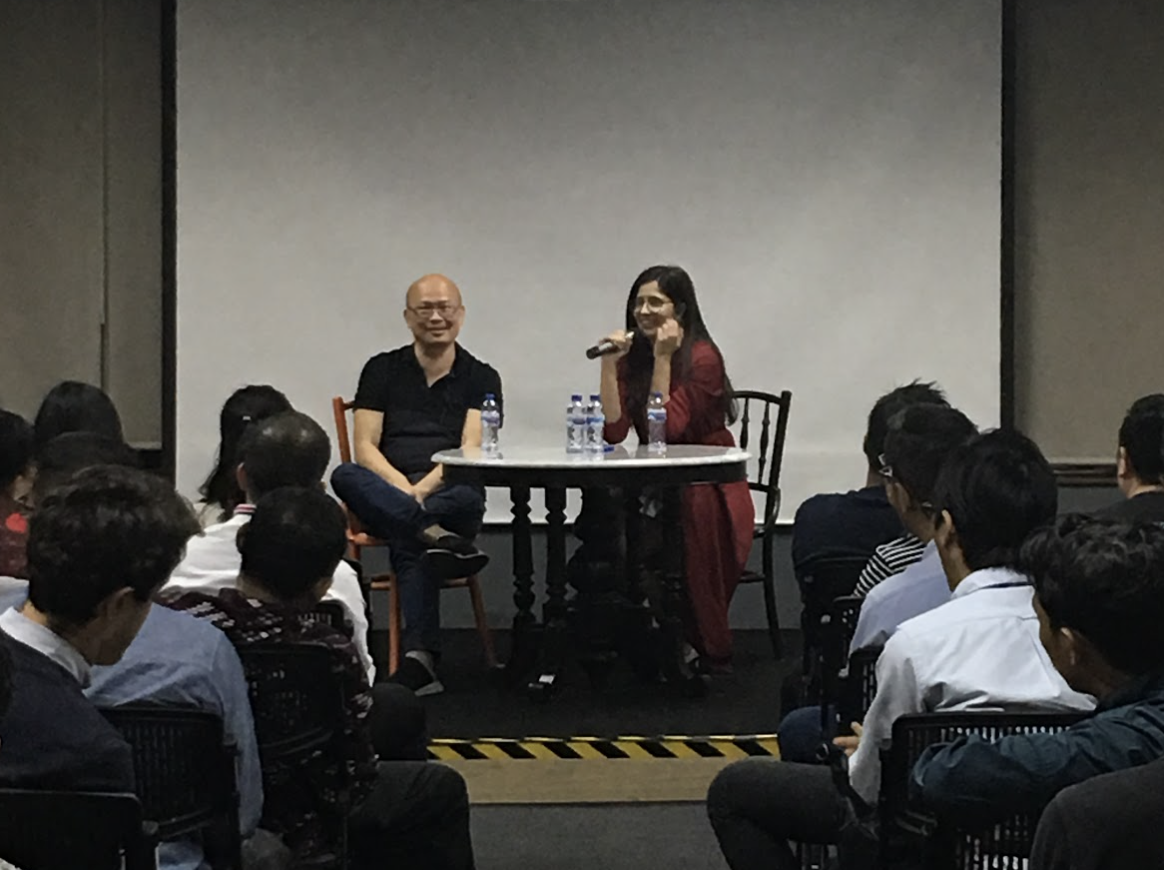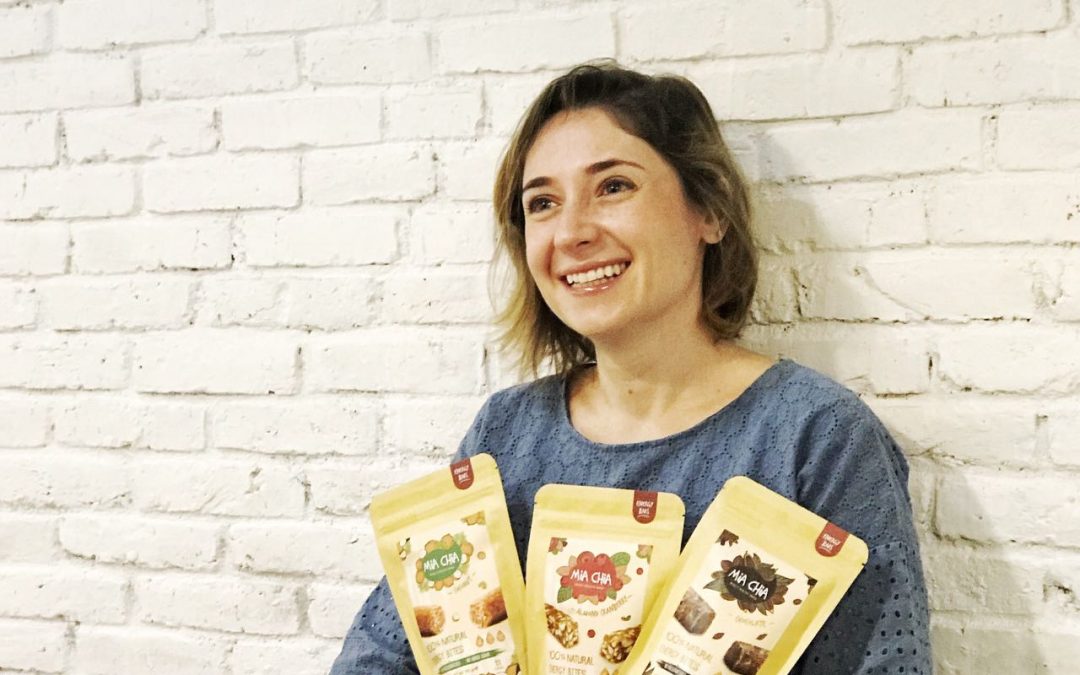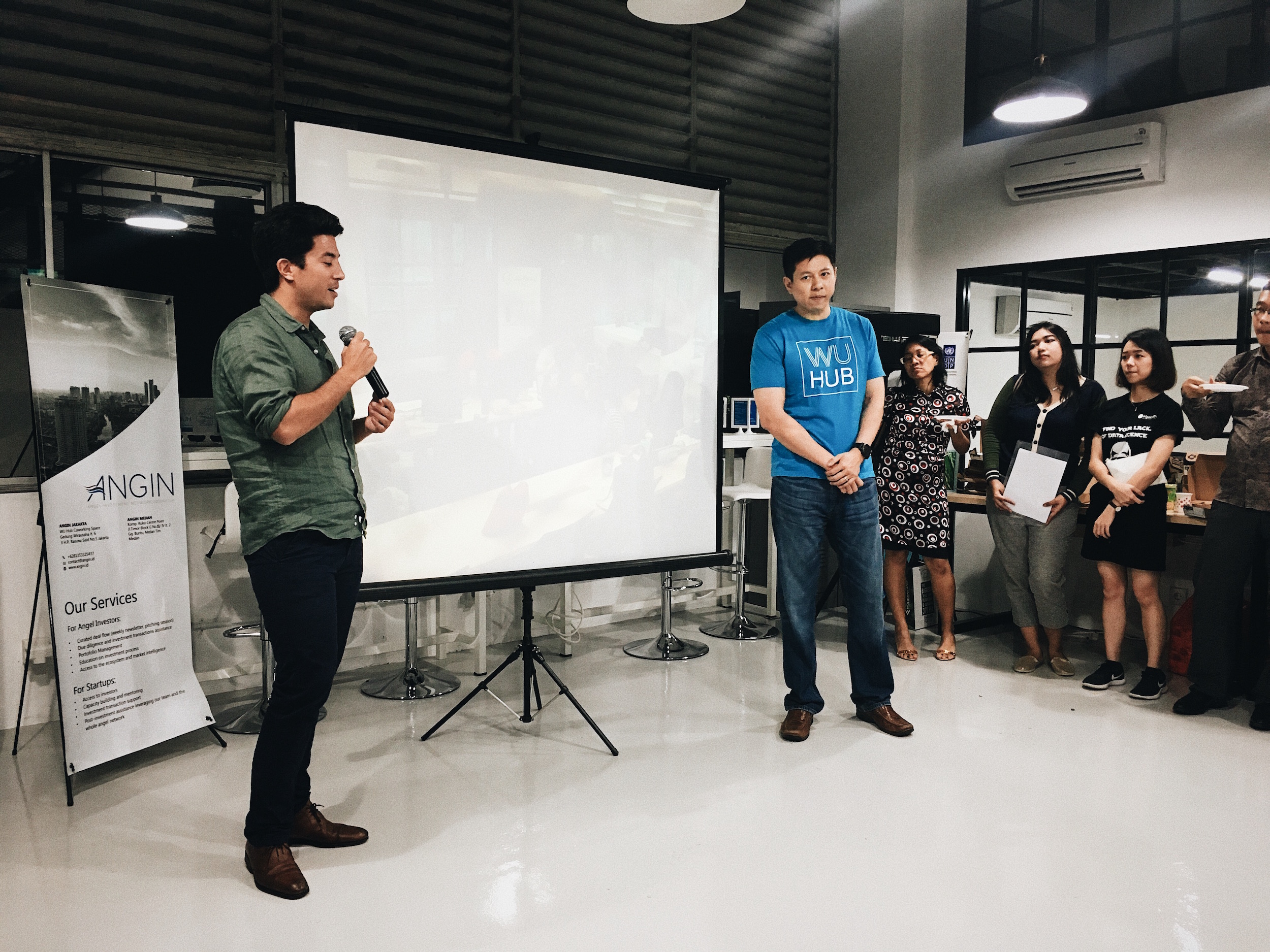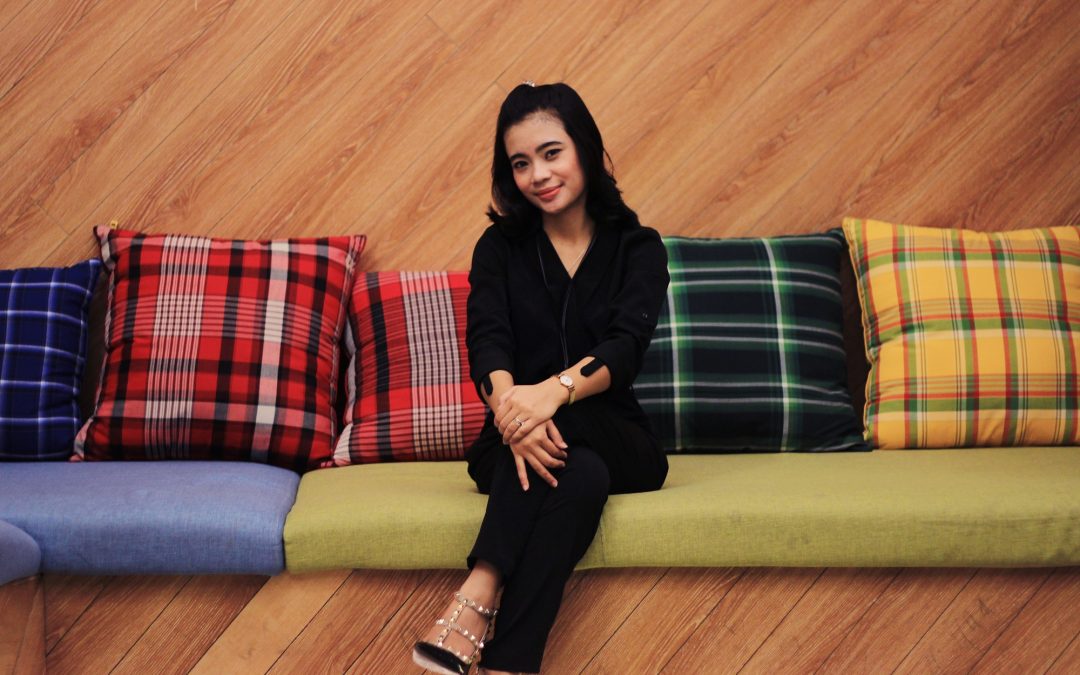Tell us a bit about yourself.
My name is Dayu Dara Permata. I am the Senior Vice President of GO-JEK, and co-founder of GO-LIFE which is the lifestyle division of GO-JEK.
What was the inspiration behind the GO-LIFE division?
Back in 2015, GO-JEK had just launched its mobile application which had 3 services – transportation for 2-wheels, logistics for 2-wheels and food delivery. Nadiem [Makarim] reached out to me and asked if i wanted to join his team with this application called GO-JEK. At the time, it was a really small startup – with only about 12 people in the management team in a very small office.
I asked him, “Why do you want me to join?” to which he shared with me his vision for GO-JEK – as a tool to empower the informal sector through technology and user-centered design, which is done by providing a platform for users and service providers. Nadiem started with transportation services and logistics which he believes to be the backbone of the business. But on top of this backbone, he believed that you could build layers and layers of services, which is how GO-LIFE came about.
We are harboring the opportunities in the market – the skills and talent out there, the service providers who struggle to find customers, who make barely enough money to make a living yet at the same time, are very productive and skillful. While on the supply side, there are inflexible working hours, with some people working away from their families for 8-10 hours, even when there are no customers. And on the demand side, you see all these customers struggling to find service providers, who are also limited by operating hours. At certain hours, everyone has to queue, and then other times it is idle. It’s simply inflexible.
These inefficiencies in the market means there is an opportunity to aggregate. So that’s how the idea came about. When Nadiem reached out to me he had no idea what kinds of services were going to be launched, so I had to figure that out. I pulled my best friend in to be co-founder, and pushed for these 3 new services (on-demand beauty, massage and cleaning services) because I am an avid user of these services. Nadiem always told me that when you invent something, make sure it also solves your problems and that you’re passionate about it. So then if things don’t go well, at least you’ve solved your own problems.
Where do you see GO-JEK going in the next few years?
GO-JEK now has become a one-stop app for urban needs. Three years ago when I first joined the company, we were just starting with transportation and logistics services. Now that backbone is very strong, and any services can really be built on top of it. We are the largest transportation network in Indonesia with around 1 million drivers, whether it be 2-wheel or 4-wheel. We are the largest logistics network in Indonesia, the largest cashless payment network and the most diverse in terms of the services we provide – transportation, logistics, food, retail, shopping, lifestyle, to professional services and payment – you name it.
Where is GO-JEK going next? When you want to grow a business there are only 3 things you can do: Firstly, you can diversify your services. We’ve just started to do that, and we are not even halfway done yet! In the next coming years, we will continue to diversify our services.
Secondly, extensifying or expanding to other regions. Indonesia has more than 300 cities, more than 100,000 populations. Now we are in 75 cities. There are still 200+ cities to expand to just in Indonesia. The opportunities are even more immense outside of Indonesia.
Last but not least – intensifying. For every service that we’ve already launched, one of the other features is to make things more efficient and more effective, and to provide more uses and solve more pinpoints.
Being a woman who is also quite young, have you ever felt undermined because of that?
Ever since I started my career, I have always had that feeling of being inexperienced and very young, particularly being a woman in a male dominated industry. So when I first jumped into the workforce, I started working as a corporate strategy analyst in a company where I was the youngest, the most clueless, etc. So you always have to establish yourself. How you do that is by working to the best of your ability, continue to learn and never stop. Step up in your role in every opportunity. If you’re given a small role, go beyond that scope and prove that you can do it and next thing you know – they give you more than your initial scope, and before you know it you are leading the team and responsible for a major deliverable and exposed to top management and shareholders. So that’s what happened in my first year working as a corporate strategy analyst.
Then, I was a consultant at McKinsey. I was also the youngest there in every team setup. I had to work with clients with more than 20 years experience in that particular field and you have to advise them. Of course you will also be undermined. The things we hear from time to time from clients, like “Oh my socks are older than you!” or “What are you doing here? You’re the same age as my daughter!” These were very common. You will always get undermined if you are young and inexperienced, if there’s someone more senior than you and you’re also working on something you’ve never done before. The key is to establish yourself, do the best to your capability and scope, go beyond that scope and prove that you can.
What are the most challenging aspects of your work? How do you stay motivated?
The biggest challenge for me as a leader is to manage people and to lead. In my life, I’ve read probably more than 100 books on leadership, and have been exposed to a lot of coaches who are good leaders. So I thought I knew a lot about leadership. I never led until I joined GO-JEK, because at McKinsey I was an analyst and mostly interacted with researchers who I didn’t have to manage. When I hired my first 60 members at GO-JEK, I realized I didn’t know how to lead despite all those books I had read. That is the most challenging part of being a leader – to lead, and how you manage these human beings with feelings and emotions – today they could be happy, tomorrow they could cry. When you give them guidance, some of them get it and become easily motivated, while others continue to be clueless.
My teams grew quickly from 60 to 150. So, feel like my biggest challenge everyday is how to manage people, how to develop them so that they can be the next leaders, and hopefully be my successors. I think leading is like giving birth, you can read hundreds of books on how to give birth, you don’t know how it feels and what it takes until you are the one actually doing it. So I think it’s just about practice and try to be a better version of the leader everyday. Because everyone is a work in progress. I don’t think anyone is perfect, it’s always contextual and situational. You can be a good leader for a certain company or organization, then you take on a different role and have to start all over again. So that’s the challenge.
How do you motivate yourself on tough days?
First of all, when you do something, make sure it’s something you’re passionate about. You’re not only in it for the money, but that you’re in for a good cause. Because there needs to be a purpose to do well, but also to do good. If you have that, then everyday will feel lighter. There are also challenges everyday that sometimes takes problem solving. How I get through my day is by reminding myself what I am here for. That means taking a step back to re-prioritise and understand what matters the most. Is it worth fighting for? You need to choose your battles. You can’t be stressed out about too many things. Understand what you can control and forget what you cannot control, because if you think about it all the time, it will just make you very unhappy. So, understand what’s within your scope, what you can control, and then solve it.
Do you have a female role model who has impacted your life?
I look up to Cheryl Sandberg (COO of Facebook). I think she is very inspiring in the way that she is a great leader – a great leader for herself, for her team, for change and for causes that she believes in. At the time, she was in her thirties, in a senior role working as the United States Secretary of the Treasury. Then, Mark [Zuckerburg] came to her asking her to join his online social networking company. She decided to take a chance and trust in Mark, someone who was 15 years younger than her. She has that audacity, fearlessness but also humility. She inspires a lot of people.
If you could tell young girls in the world any message, what would it be?
I have this mental model I call B.R.A.V.E. ‘B’ stands for believe in yourself, if you can or believe you cannot you will be right either way. So whenever I do something, I believe I can. If you have the mindset that you can’t do it, you’re already halfway to failure.
‘R’ is role model success – which is important if you want to be successful as a female leader. Everyone wants to be successful. but there are many definitions of success. My success means something very different to someone else’s success. Make sure you know what success means to you – that could mean leading a team of a thousand people or to be like someone, whether that person be Mark Zuckerberg or Bill Gates or Jokowi. Once you have a goal in mind, the journey can be zig-zag or sideways but at least you know you’re going there.
‘A’ stands for attain rational distance. Sometimes when women think they want to drop out of the workforce, it can be short-sighted, focused on the short-term, or purely fueled by emotions. If you want to be a successful leader, you always need to attain rational distance whenever you make a decision. Whatever decision you make will affect you and your future. If you make decisions, ask yourself the question – Will my family and friends be happy about it? In ten days or ten months, will I be happy about it? If the answer is no, then probably don’t make that decision or at least postpone it until you are more rational.
‘V’ is view failures as a learning. As an entrepreneur and a leader, most times than not you will fail at the first time you try. The success rate of startups is 10% which means if you try 10 times, you will succeed at least once. If you bump into failures, don’t feel like this is the end of everything. Just think of it as part of your learning curve. As I go on and make mistakes, I learn to do better. Then, at some point my performance will outdo my failures and I will be a high-performing leader and individual. So, view failures as the cost of learning.
‘E’ is expand possibilities. A lot of female leaders think they have to choose between career or family, love life or professional life, and being successful at work or at home. That is exactly what will happen if you think that way. You will only succeed in one of these areas because that is your mindset. Expanding possibilities is about believing that you will achieve everything, not at the same time, but at the right time. There might be a time where I will want to settle down and have kids. That means that in the next 9 months, I will have this hormonal turmoil and might not be my best self all the time, but it’s ok because it’s an investment. Once you have given birth, maybe your priorities will shift to make sure that your kids are well-looked after and you become a responsible mother. But after that, you can basically run again and continue your marathon. Believe that you can be successful in everything that you do, be ready to pass in and out of your career and family until you find the right balance. Just be brave.




